‘Prime Minister Sheikh Hasina has directed the energy ministry to wait for ‘new technology’ before going for coal extraction’
Wait for ‘new technology’: PM
Stressing the need to protect arable land, Prime Minister Sheikh Hasina has directed the energy ministry to wait for ‘new technology’ before going for coal extraction.
She also outlined the ministry’s future challenges and ways to tackle them.
State Minister Nasrul Hamid Bipu briefed journalists on Thursday after her first visit to the ministry in two-and-a-half-years.
“The Prime Minister told ministry officials that new technology to extract coal may become available soon. We will wait for it,” he said quoting the Prime Minister.
Hasina’s directive comes amid controversies on whether Bangladesh should go for open-pit mining along with importing coal to meet increasing power demands.
Hamid was, however, silent on coal extraction issues. He also did not explain how thermal power production could be raised while waiting for ‘new technology’.
He said the Prime Minister wanted protection of farmers’ land first and coal extraction to be left to the future.
Hamid said Hasina, who also holds the energy portfolio, had ordered the stepping up of coal extraction research.
State-run oil, gas and mineral resources corporation Petrobangla claims Bangladesh has five coal mines with an estimated combined reserve of 3.1 billion tonnes.
Currently, an estimated 1.65 million tonnes of coal is produced annually from one of the mines through underground mining.
A group of experts, environmentalists, various Leftist fronts oppose open-pit mining which pollutes the environment, lays waste to arable land and displaces the habitants.
Despite a matter of high priority, the government has failed to formulate a coal policy in the past decade.
About 75 percent of Bangladesh’s power comes from gas while coal is used to produce less than 3 percent.
The government claims electricity generation increased nearly 5,000MW over the past five years. A ‘Festival of Light’ was held in Dhaka last year to mark the production of 10,000MW, hitting a new milestone in the country. It also plans to raise power production to 30,000MW by 2030, half of which would come from coal.
However, according to information presented in Parliament last June, around 40 percent people still do not have access to electricity.
Bipu said the Prime Minister had directed the setting up of a coal-fired power plant near the Paira Port in southern Patuakhali.
The government recently faced a wave of protests when it decided to go ahead with a 1,320MW thermal power plant at Rampal, near the Sunderbans.
Full article – bdnews24.com/bangladesh/2014/02/06/wait-for-new-technology-pm
PM’s strategy on coal: Asia Energy’s future with Phulbari bleak
Reported by: UNBconnect
Reported on: February 8th, 2014 12:02:55 am

Dhaka, Feb 7 (UNB) – The future of Phulbari coal mine project of UK-based Asia Energy, since renamed as Global Coal Management (GCM), has become bleak following the Prime Minister’s recent distinct statement on coal mining in the country.
While holding meeting with Power and Energy Ministry’s top officials on Thursday (February 6), Prime Minister Sheikh Hasina said: “Right now, we want to leave the issue of coal extraction to the future technology as food security and protecting the land of the farmers is the first priority.”
The Asia Energy entered Bangladesh in 2003 buying a contract from Australian company BHP to explore coal in Phulbari of Dinajour district. But when Asia Energy moved to execute its project as an open-pit mining, it faced tremendous opposition from local community and environmentalists.
The major protests took place on August 30 in 2006, where six protesters were shot dead, allegedly by paramilitary forces, and 300 were injured when a crowd of 30,000 people stormed the local offices of Asia Energy in Dinajpur.
The incident forced the government to announce postponement of the operation of Asia Energy’s Phulbari project. The Asia Energy was renamed as Global Coal Management (GCM) in 2007.
Recently, different activities of Asia Energy or GCM have been suggesting that the company is planning to come back in a new way to implement its project. Particularly, the GCM, a listed company with London Stock Exchange showing Phulbari coal mine as its project, became active in the country’s northern region where it recently launched some campaigns to garner local public support in its favour.
The GCM’s campaign raised serious concern among the anti-Phulbari activists who also threaten to reactivate their protest to resist the UK-company’s move.
Meantime, GCM reconstituted its board of directors and brought major changes in its Dhaka as well as London office by putting some new directors and staffs which also suggests the company is really coming up with new enthusiasm.
Sources said the company also recast its strategy to win the deal for exploration of the proposed Phulbari coal mine.
As part of the new strategy, the company has inducted a young Malaysian tycoon as a Non-Executive Director, removing a Briton from the Board of Directors.
With the announcement, Malaysian tycoon Dato’ Md Wira Dani Bin Abdul Daim has replaced British entrepreneur Neil Lindsey Herbert from the board of directors of GCM.
“Under the leadership of Malaysian business tycoon, the GCM was eyeing to rearrange its strategy in winning a deal for commercial exploration of the proposed Phulbari coalmine district,” said a source.
The GCM appointed Mettiz, an investment company with significant corporate and financial experience in natural resources, power generation, manufacturing and real estate, a lobbyist in Bangladesh last year to get approval of the government for commercial exploration of the Phulbari coalmine.
But, energy industry insiders thought the Prime Minister’s statement has made it clear that the project is unlikely to be executed in near future.
Quoting the Prime Minister, State Minister for Power and Energy Nasrul Hamid said she has given us a directive regarding coal extraction saying that “first of all we need” food security and land use.
“Only after ensuring food security and protecting farmers’ land, we’ll decide which technology we’ll use to extract coal,” he told reporters following the PM’s meeting.
Asia Energy Bangladesh’s CEO Gary Lye, however, said Phulbari Coal Project uses the land for mining temporarily. Land is immediately rehabilitated and returned to agriculture after extracting the coal which is a far greater benefit for the country.
He said Asia Energy is concerned to ensure food security and the company’s agriculture improvement plan will increase the food production from the area as well as allow coal extraction and jobs.
“We (will) welcome the opportunity to brief the Prime Minister on these plans and show how she can deliver for the people and country coal, major power and food security. People from the area want the coal mining and development benefits it’ll bring to them and their region which is one of the Bangladesh poorest regions.”
Bangladesh has five coal fields with an estimated reserve of some 3.0 billion tonnes, industry insiders said. Of the five coal fields, only one in Barapukuria is now in operation.
– See more at: http://unbconnect.com/pm-coal-ld/#&panel1-2
PM’s strategy on coal: Asia Energy’s future with Phulbari bleak
Reported by: UNBconnect
Reported on: February 8th, 2014 12:02:55 am

Dhaka, Feb 7 (UNB) – The future of Phulbari coal mine project of UK-based Asia Energy, since renamed as Global Coal Management (GCM), has become bleak following the Prime Minister’s recent distinct statement on coal mining in the country.
While holding meeting with Power and Energy Ministry’s top officials on Thursday (February 6), Prime Minister Sheikh Hasina said: “Right now, we want to leave the issue of coal extraction to the future technology as food security and protecting the land of the farmers is the first priority.”
The Asia Energy entered Bangladesh in 2003 buying a contract from Australian company BHP to explore coal in Phulbari of Dinajour district. But when Asia Energy moved to execute its project as an open-pit mining, it faced tremendous opposition from local community and environmentalists.
The major protests took place on August 30 in 2006, where six protesters were shot dead, allegedly by paramilitary forces, and 300 were injured when a crowd of 30,000 people stormed the local offices of Asia Energy in Dinajpur.
The incident forced the government to announce postponement of the operation of Asia Energy’s Phulbari project. The Asia Energy was renamed as Global Coal Management (GCM) in 2007.
Recently, different activities of Asia Energy or GCM have been suggesting that the company is planning to come back in a new way to implement its project. Particularly, the GCM, a listed company with London Stock Exchange showing Phulbari coal mine as its project, became active in the country’s northern region where it recently launched some campaigns to garner local public support in its favour.
The GCM’s campaign raised serious concern among the anti-Phulbari activists who also threaten to reactivate their protest to resist the UK-company’s move.
Meantime, GCM reconstituted its board of directors and brought major changes in its Dhaka as well as London office by putting some new directors and staffs which also suggests the company is really coming up with new enthusiasm.
Sources said the company also recast its strategy to win the deal for exploration of the proposed Phulbari coal mine.
As part of the new strategy, the company has inducted a young Malaysian tycoon as a Non-Executive Director, removing a Briton from the Board of Directors.
With the announcement, Malaysian tycoon Dato’ Md Wira Dani Bin Abdul Daim has replaced British entrepreneur Neil Lindsey Herbert from the board of directors of GCM.
“Under the leadership of Malaysian business tycoon, the GCM was eyeing to rearrange its strategy in winning a deal for commercial exploration of the proposed Phulbari coalmine district,” said a source.
The GCM appointed Mettiz, an investment company with significant corporate and financial experience in natural resources, power generation, manufacturing and real estate, a lobbyist in Bangladesh last year to get approval of the government for commercial exploration of the Phulbari coalmine.
But, energy industry insiders thought the Prime Minister’s statement has made it clear that the project is unlikely to be executed in near future.
Quoting the Prime Minister, State Minister for Power and Energy Nasrul Hamid said she has given us a directive regarding coal extraction saying that “first of all we need” food security and land use.
“Only after ensuring food security and protecting farmers’ land, we’ll decide which technology we’ll use to extract coal,” he told reporters following the PM’s meeting.
Asia Energy Bangladesh’s CEO Gary Lye, however, said Phulbari Coal Project uses the land for mining temporarily. Land is immediately rehabilitated and returned to agriculture after extracting the coal which is a far greater benefit for the country.
He said Asia Energy is concerned to ensure food security and the company’s agriculture improvement plan will increase the food production from the area as well as allow coal extraction and jobs.
“We (will) welcome the opportunity to brief the Prime Minister on these plans and show how she can deliver for the people and country coal, major power and food security. People from the area want the coal mining and development benefits it’ll bring to them and their region which is one of the Bangladesh poorest regions.”
Bangladesh has five coal fields with an estimated reserve of some 3.0 billion tonnes, industry insiders said. Of the five coal fields, only one in Barapukuria is now in operation.
– See more at: http://unbconnect.com/pm-coal-ld/#&panel1-2




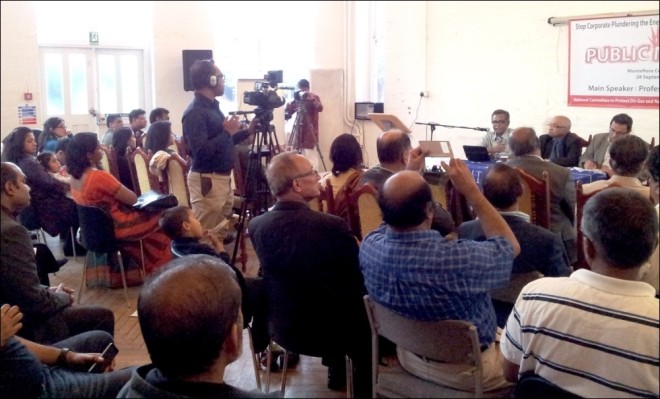

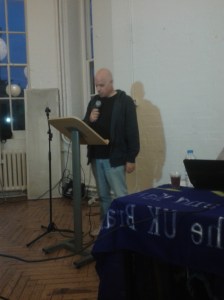
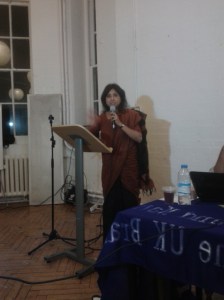



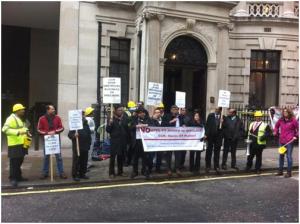

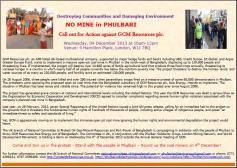
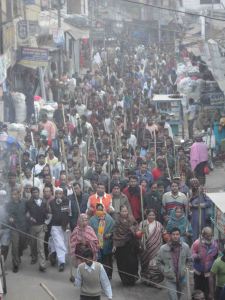
You must be logged in to post a comment.